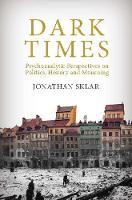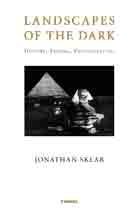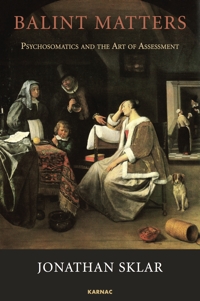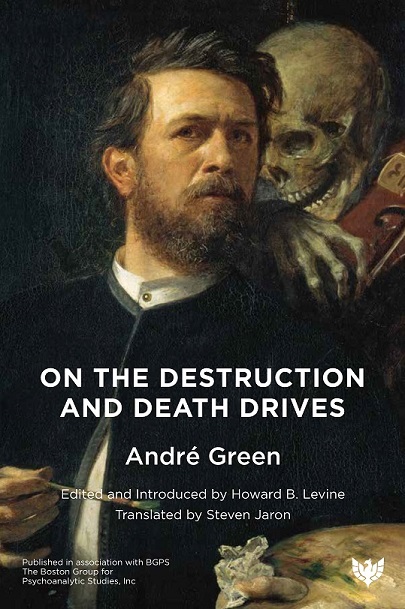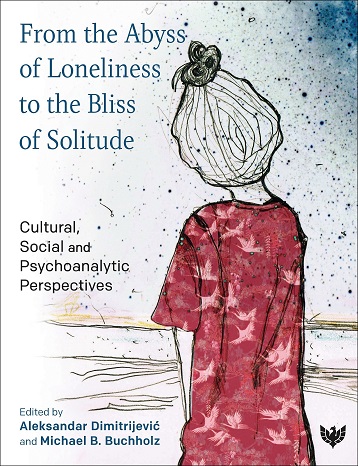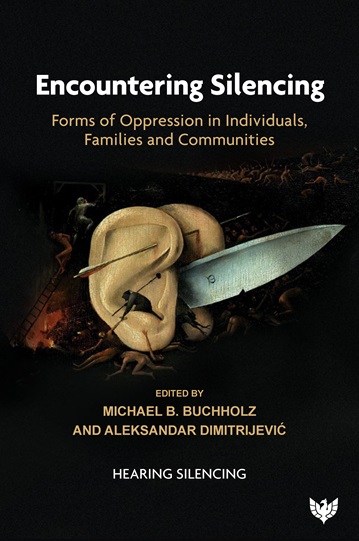The Soft Power of Culture: Art, Transitional Space, Death and Play
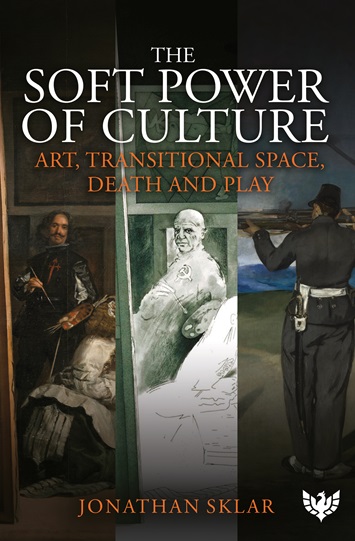
Book Details
- Publisher : Karnac Books
- Published : April 2024
- Pages : 312
- Category :
Psychoanalysis - Catalogue No : 97589
- ISBN 13 : 9781800132481
- ISBN 10 : 1800132484
Also by Jonathan Sklar
There are currently no reviews
Be the first to review
Psychoanalysis is a valuable tool to add to the sciences and the arts: all contain unconscious hidden depths that can become insight and understanding and contribute to humanity as culture. Using the prism of art, music, and storytelling, Jonathan Sklar takes psychoanalytic thought to a wide audience to enable a greater understanding of humanity. The book contains 26 colour illustrations, including 23 stunning artworks to deepen the appreciation of all the arts bring.
Totalitarian governments emerge from the same unconscious sadomasochistic structures that are found in the analysis of traumatised patients. Since the earliest times, art has been used as propaganda both to uphold the status quo and to subvert it. The arts as a whole connect with the individual and can open eyes and change minds. Culture is a valuable tool and one where the lack was felt keenly during lockdown when galleries, music halls, and theatres were closed. Culture begins in the child’s mind. For Winnicott, it is located in the potential space between the individual and the environment as the child’s mind develops its unconsciousness and capacities for play. And the ability to play, or not, is connected to the freedom to think own’s own thoughts or, by preference, to follow the leader.
Jonathan Sklar investigates these themes and more through twelve stunning chapters. These include discussions of Francis Bacon’s meditations on sadomasochism, linked to his fears of the rise of Hitler, and of today’s world with debate seemingly missing and, in its place, the political entrenchment of hatred. There is a discourse on Cézanne’s apples, always in process of falling, and a chapter on the adventuresome British painter William Tillyer, examining his art to understand the necessity for his creative drive. Sklar reflects on the analysis of a heroin addict, re-examines Freud’s seminal paper ‘A child is being beaten’ in relation to maternal sadism, meditates on psychosis and the true self, and considers the origins of sadomasochism and early trauma in the treatment of a schizophrenic woman. A chapter of ‘early Covid writings’ includes contributions from Endre Koritar, Victoria Hamilton, Philip Hewitt, Danielle Knafo, Drew Tillotson, Marcelo N. Viñar, and Wang Qian, and explores emptiness and holding on to creativity. The Bloomsbury Group and the early evolution of independence in the British Psychoanalytical Society is the focus of the penultimate chapter, and the book ends with thoughts about dancing bears – discussing our present-day problems of inner and outer reality in individuals and in societies.
Reinforced with playful appearances by Velázquez, Goya, Klee, Picasso, Arendt, Benjamin, Brecht, Huysmans, Shostakovich, Bollas, Bion, Forrester, Milner, and Enid Balint, another thread running through the book is of holding one’s nerve, being alive in the moment, and realising that enactment in clinical work can be another royal road to the unconscious. Yet another is how culture can speak to hard-core power: Picasso found a way of focusing his pain(ting) Guernica to evermore pin the fascist crime to the town destroyed by the Luftwaffe. Today’s crimes can also be addressed in such ways: Putin’s destruction of Ukraine, totalitarian states of mind conglomerating in all continents, and the crisis of global warming.
The emptiness of the missing from early traumatic states of mind often cannot be replaced because it was never present. Yet the gap can be filled with metaphor as in storytelling, in art, music, literature, and myths, as processes to sustain recovery and new beginnings. Read The Soft Power of Culture: Art, Transitional Space, Death and Play to open your eyes and change your mind on all that culture brings.
Reviews and Endorsements
Jonathan Sklar’s The Soft Power of Culture joins the perception of culture as soft with the truth of its personal and societal power. The book is a collection of gorgeous reflections on the coexistence – as reflected in art forms, play, and the radicality of free association – of life and death, cruelty and grace, conscious and unconscious experience, negation and affirmation, apocalypse and humanity. Sklar’s reflections on specific artists and their work as well as his own psychoanalytic clinical work are deeply interesting and embody the power of culture to document and transform human experience.
Harriet Wolfe, MD, president, International Psychoanalytical Association
The book is supremely relevant to our times. It imparts the inevitable presence of culture in the singular doings of psychoanalysis. It relates the inevitable presence of the Winnicottian heritage of transitional space and space for the reflection of W. R. Bion: what would the continent of the continent be? How to elude a time in which psychoanalysis melds with other scenarios of a culture in acute crisis? Jonathan Sklar does not intend to convince but rather to inspire movement in the reader’s spirit.
The theory of relativity taught us that the space between two bodies has existence, curves with gravity, conducts light and its black holes make spacetime disappear. Today, physics, the most hallowed science, addresses the mystery of what constitutes space. If we include human art, economy, and politics in our reflection, the challenge is even more startling. I would say that Sklar’s proposition is of inevitable urgency. It should be read, and this challenge addressed.
Leopold Nosek, former president of FEPAL (Latin American Psychoanalytical Federation)
Jonathan Sklar’s deep knowledge of psychoanalysis gained from a lifetime in the consulting room illuminates three separate but related areas: the considerable demands made on both protagonists in the analysis of very troubled patients, the belief that the joys offered by great artists can be furthered by psychoanalysis, and the conviction psychoanalysis offers an indispensable tool for understanding seemingly intractable sociopolitical realities. A book to savour.
Lesley Caldwell, visiting professor, University College London
This book is like going to an exhibition at a museum, where time must be spent in front of every painting to truly appreciate the beauty and richness of each work and to experience the emotions it elicits. Similarly, every chapter of this book will need time for reflection after reading to genuinely grasp the concepts presented and to appreciate the complexity and knowledge communicated in every page. Once again, as he did in his earlier collection of essays Dark Times, Jonathan Sklar challenges us to engage and to think deeply about the world around us. Psychoanalysts will find nuggets of deep psychoanalytic insights while also being challenged to examine a broader landscape outside the confines of the consulting room. But this is not just a book for psychoanalysts – it is an important work that invites the thoughtful reader into a richly imagined world where there is much to admire, to enjoy, and to comprehend.
Edward Nersessian, clinical professor of psychiatry at Weill Cornell Medical College
Table of Contents
About the author
Acknowledgements
About the contributors
Prologue
1. Stranger, visitor, metaphor
2. Velasquez and the transmission of psychoanalysis
3. Francis Bacon and the radicality of free association
4. William Tillyer: against nature
5. Psychosomatic reflections in the analysis of a heroin addict
6. Revisiting “A child is being beaten”: reflections on maternal sadism
7. Psychosis and the true self
8. Violence, destruction and survival regression
9. Early Covid writings
10. Bloomsbury and the early evolution of British psychoanalysis
11. Apocalyptic times and the missing debate
12. Thoughts about dancing bears—psychoanalytic thinking to understand present-day problems of inner and outer reality
Postscript
References
Notes
About the Author(s)
Jonathan Sklar, MBBS, FRCPsych, is a training analyst and fellow of the British Psychoanalytic Society. Originally trained in psychiatry at Friern and the Royal Free Hospitals, he worked for four years in psychotherapy at the Tavistock Clinic in London. For many years he was consultant psychotherapist and head of the psychotherapy department at Addenbrookes and Fulbourn hospital in Cambridge. He now works in full time analytic practice in London. He teaches and supervises at the Institute of Psychoanalysis; teaches an MSc course on 'Ferenczi and Contemporary Psychoanalysis' at University College London; and teaches in Chicago. For the past five years, he has convened a psychoanalytic conference outside Cape Town and, for thirty years, has convened Balint groups working with general practitioners and psychiatrists. He has lectured widely throughout Europe as well as in South America. His psychoanalytic papers have been published in Italian, Spanish, French, and Portuguese. From 2007-2011 he was Vice President of the European Psychoanalytic Federation.
Customer Reviews
Our customers have not yet reviewed this title. Be the first add your own review for this title.
You may also like
Dark Times: Psychoanalytic Perspectives on Politics, History, and Mourning
Jonathan Sklar
Price £14.39
save £1.60
From the Abyss of Loneliness to the Bliss of Solitude: Cultural, Social and...
Aleksandar Dimitrijevic
Price £35.99
save £4.00
Encountering Silencing: Forms of Oppression in Individuals, Families and...
Michael B. Buchholz
Price £26.09
save £2.90


